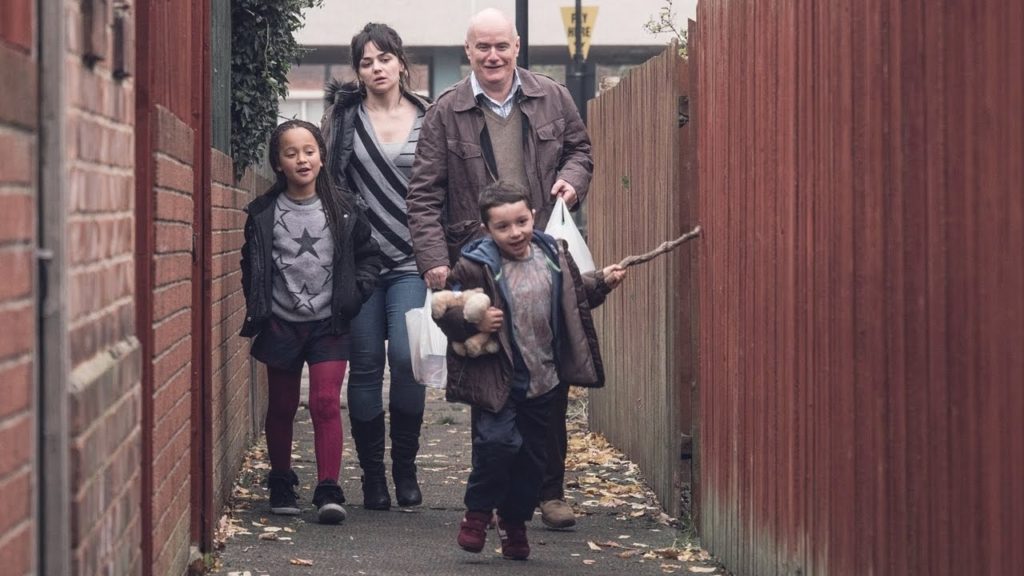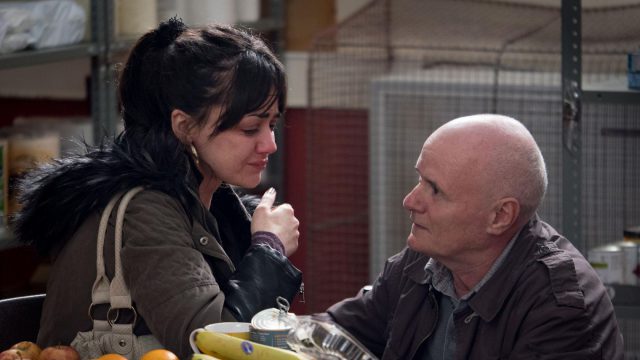It’s been five decades since Mr. Ken Loach made the hard-hitting television drama Cathy Come Home. The 75 minute drama tracks a young family’s downward spiral into homelessness. While it caused outrage among the ruling class and politicians, it also raised awareness among the general public, who were otherwise fed soap operas highlighting rich people’s exaggerated conflicts. In his recent Palme d’Or winning movie I, Daniel Blake (2016), Kenneth Loach continues to channel that same righteous fury and humanism to portray the trials and tribulations of the contemporary British working class. Mr. Loach’s movies may lack the nuances it had in his earlier works. Yet, his best works never fail to charm us. He and his long-time collaborator/screenwriter Paul Laverty have brought upon stories that are about authentic people. They capture the realities of working people and their idiosyncrasies without ever turning them into miserable creatures. Loach and Laverty doesn’t show the poor as idle victims, always sad and dour. The poor in their movies are not like the ones we see in TV shows or news, which turn poor people into an object of pity.
Mr. Loach stays true to the people he is presenting on-screen. He closely observes their relationships, experiences, and little quirks. By creating this humane environment, he easily forges an emotional connection with the audience. Since these common people are the driving force of his stories, their face and dexterous movements are at the center of his frames. In I, Daniel Blake, director Loach creates emotional resonance with the central character even before showing the hard-lines in his face or the endearing eyes. As the opening credits roll in a black screen, we hear a conversation in the background between healthcare professional and a working-class man, who has had a heart attack and strictly advised to stay at home. On the basis of ridiculous questionnaires, the official cancels the man’s sick pay and deems him fit for work.
Lovingly called as ‘Dan’ by his friends and ‘Daniel Blake’ (an amiable Dave Johns) by the rigged system, the New Castle widower and skilled carpenter in his late 50’s decides to fight back the monumental, bureaucratic farce. For no apparent reason, Dan’s eligibility to receive disability benefits is cut down and now he is caught in a dead-lock. Dan spends his days alone at home, bringing in scrap wood to carve wooden figures, and listens to music. He reaches out to fellow human beings on the other side of the system, but he is either brushed off or humiliated. Dan phones and waits on hold for a help-line number, which says he can’t appeal until the ‘decision maker’ calls him and confirms the result of irrelevant questionnaire. It’s a mystery when the decision maker will make his call. The fellows at Jobcentre Plus ask Dan to apply for job-seeker’s allowance. He asks for the form. The official says he has to apply it online (‘digital by default’, he says). The lack of computer knowledge is the biggest obstacle for Daniel and it takes him quite a few days for successfully sending the application.
It’s not enough to just apply for job-seeker’s allowance. Despite 40 year job experience, the corporate behemoth running the system directs Dan to attend a CV workshop (leads to one of the hilarious scenes). Then he has to get on the streets and give his CV in person. But even then, Dan can’t go to work due to his heart condition. It’s the perfect catch-22 situation. When Dan expresses his frustration, the insolent bureaucrats threaten him with sanctions and police. He is always asked to have a ‘calm face’, whatever injustices and stupidities the fellows at other end bring upon him. While being caught at the labyrinthine of the benefits system, Dan meets young, single mother Katie (Hayley Squires with hauntingly sad eyes) and her two children – Daisy and Dylan. Katie who was forced to move from London to New Castle is also denied welfare benefits for absurd reasons. Her predicament seems to be far worse than Dan’s. Dan finds some relief by helping the family in little ways. There are several people in Dan’s life who brings out his inherent mischievous charm and humanity. The camaraderie Dan shares with a young African next door and with Katie’s smart children brings flicker of hope.
Ken Loach’s worlds are made grim by the ruthless officials. But we rarely find villains in his world. The apathetic officials are more of a pawns programmed to reflect government’s staunch views. Hence, he doesn’t deny the possibility of occasional kindness in those offices. When the supervisor discreetly calls the sympathetic office worker to call off the help she provides to Dan as ‘dangerous precedent’, there’s an added sadness to it. In those scenes, writer Laverty shows how the unemployed and welfare-seekers ceaselessly confront numerous indignities forced upon them. Laverty and Loach finds gentleness and generosity in the awful food bank. A stranger showing the old guy how to use a mouse, a neighbor truthfully asking ‘are you alright’, a child who wants to reciprocate the love she received, such rare points of lightness brings optimistic layers to the narrative surface that’s littered with frustration and anger. As Ken Loach says in his interview (to Empireonline.com), “One thing you look for is the audience to feel solidarity with the characters, so they’re not ‘the other’; they’re not someone you can disregard because they’re less of a person somehow.” Mr. Loach perfectly succeeds in this aspect. He instills unbridled humanity in the narrative which causes us to cry, enrage, and applaud for these people.
Ken Loach and Paul Leverty are at their finest when they showcase their political objectivity or ideological stance through genuine subjectivity. ‘I, Daniel Blake’ is filled with such elegant moments. The narrative isn’t certainly devoid of heavy-handed moments with didactic dialogues and harangues. Nevertheless, the well-crafted humane moments seems to be the perfect response to the media and system, which dubs every poor as ‘liars’, ‘shirkers’, and ‘benefits-cheaters’. Katie’s breakdown in the food bank is one of the most tear-jerking moments in Loach’s oeuvre. The scene particularly teaches how it isn’t often necessary to showcase depth through visual allure and subtle symbols. Katie’s behavior and the food bank woman’s gesture profoundly convey the themes of poverty and humanity (with fundamental techniques). My favorite moments in a Loach’s film is when the marginalized uphold their dignity by an act of simple resistance (an equivalent of ‘showing the finger’ to hardened authorities). In that way, the ‘graffiti’ scene was so powerful and upbeat. In the same scene, Mr. Loach brings in a character of homeless man to demonstrate his barking-mad leftist side (contrary to his gentle nature reflected through Dan). That’s the closest Loach & Leverty gets to overtly broadcast their politics. But even still the performer looks authentic and charming enough to add some more color and energy to the scene. The final sequence is definitely heavy-handed, going to lengths to convey the reason behind the title. Yet, those words can be waved against our governmental structures, mostly barren of humanity.
“I, Daniel Blake” (100 minutes) is a powerful and essential social drama, which indicts the insolent bureaucratic system carefully designed to not care for those in need. The 79 year old film-making legend continues to pack an emotional punch with his distinct brand of humanist film-making.





